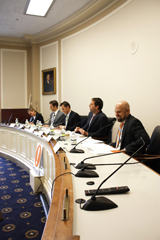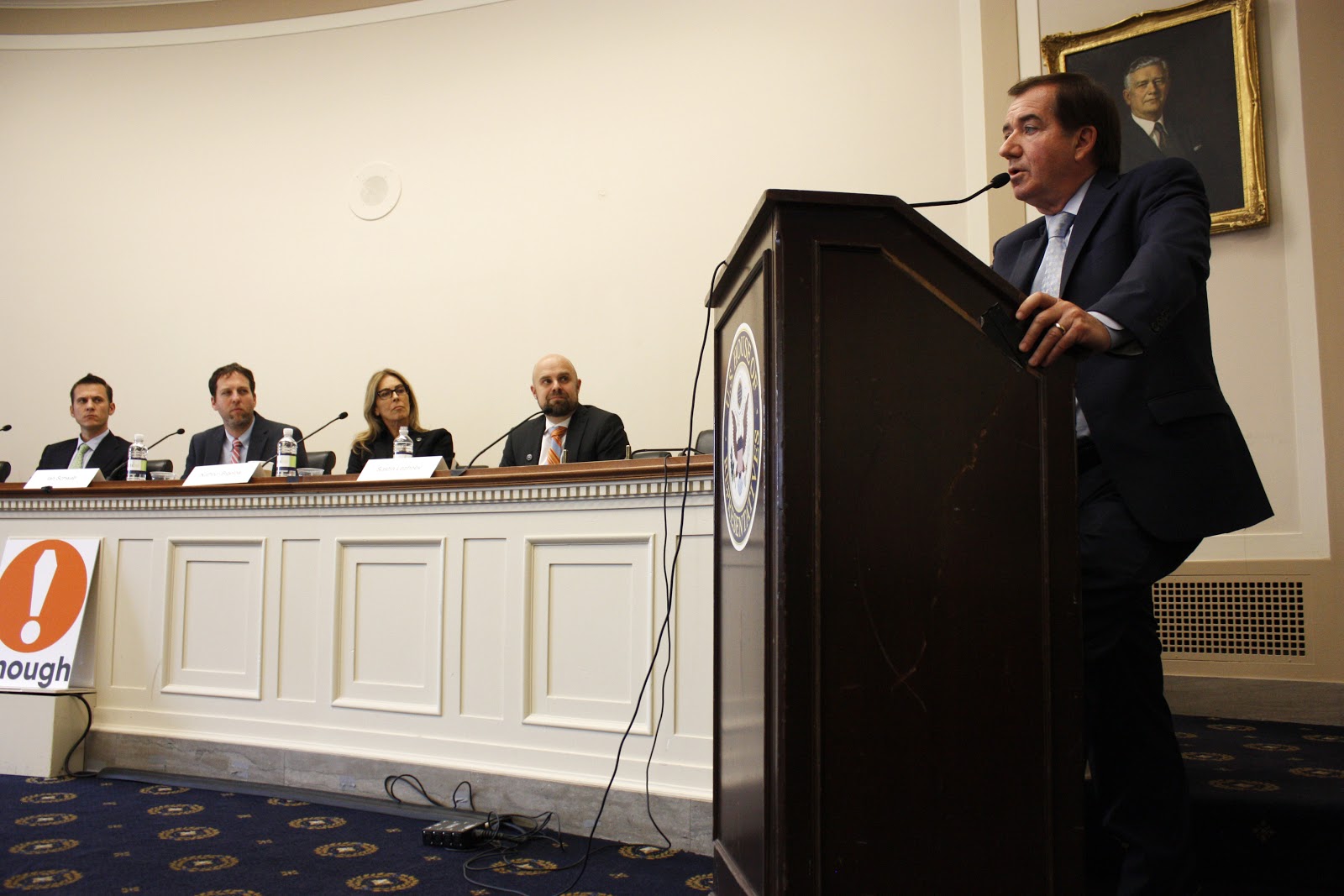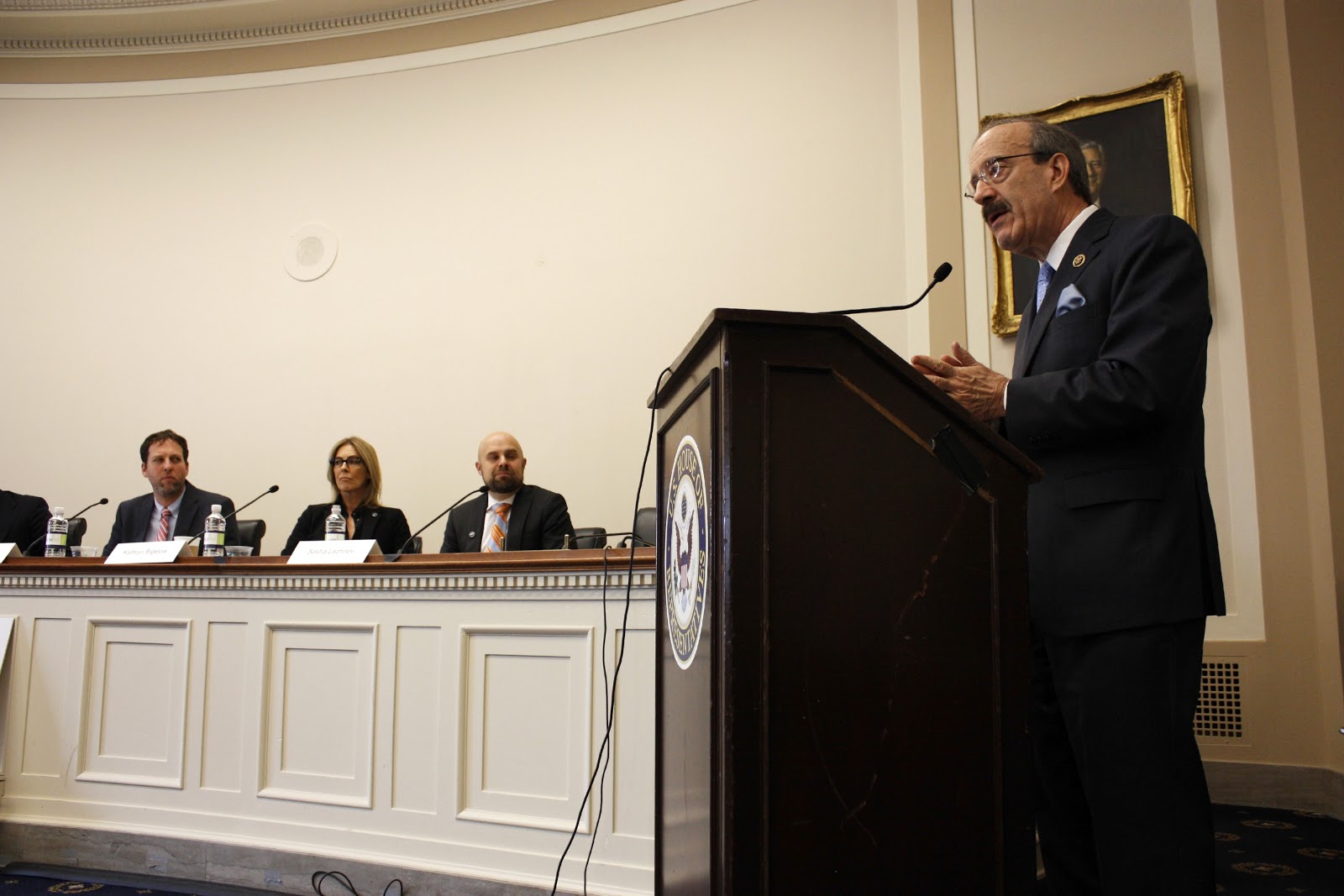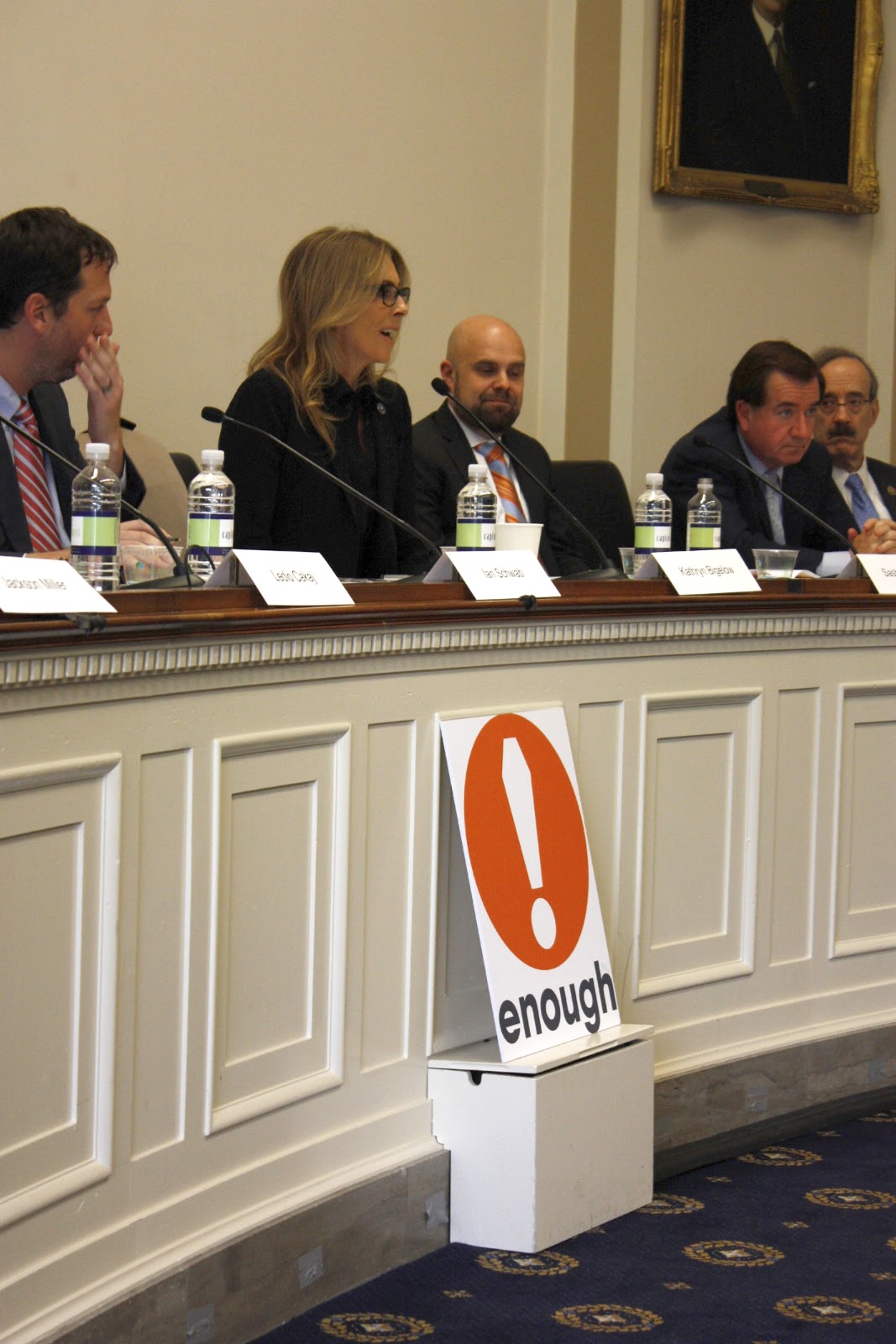
Editor’s Note: This blog post was written by Enough Project Intern Amanda Schmitt. The photographs were taken by Enough Project Intern Faith Hornor.
On October 27, 2015, the Enough Project hosted Oscar winning director, Kathryn Bigelow, for a panel event on how wildlife trafficking fuels atrocities in east and central Africa. Drawing a diverse audience of activists, legislators, NGO staff, and representatives from the Departments of Defense, State, and the Interior, the event was an opportunity to discuss cross-cutting issues from humanitarian, security, and wildlife protection agendas. The event also marked the release of a new Enough Project report, “Tusk Wars: Inside the LRA and the Bloody Business of Ivory,” authored by Ledio Cakaj.
The panel was moderated by Ian Schwab, Director of Advocacy and Impact Strategy at the Enough Project, and speakers included:
- Kathryn Bigelow, Film Director
- Sasha Lezhnev, Associate Policy Director at the Enough Project
- Jackson Miller, Analyst at C4ADS
- Ledio Cakaj, Independent Consulatant
- Andrea Heydlauff, Director of Strategic Communications at African Parks
 House Foreign Affairs Committee Chairman Ed Royce (R-CA) and Ranking Member Eliot Engel (D-NY) launched the event, asserting the need for bipartisan support for the Global Anti-Poaching Act (H.R. 2494) bill.
House Foreign Affairs Committee Chairman Ed Royce (R-CA) and Ranking Member Eliot Engel (D-NY) launched the event, asserting the need for bipartisan support for the Global Anti-Poaching Act (H.R. 2494) bill.
Chairman Royce recognized with gratitude the current 100 cosponsors to the Global Anti-Poaching Act but emphasized the desire to gain full support, highlighting Congress’s collective moral responsibility to act. Thereafter, Ranking Member Engel asserted the need to elevate wildlife trafficking from a predominantly environmental platform to the foreign policy and national security agenda as well, due to its links to terrorism and mass violence. Representative Jim McGovern (D-MA) was present as well, speaking to his strong support for not only anti-poaching and anti-trafficking measures, but also broader initiatives to counter the LRA.

Following the Members of Congress, Heydlauff spoke about the timeliness of the report, as four rangers were killed earlier this month in Garamba National Park in Democratic Republic of Congo (DRC). Eighty-five elephants have already been killed in the park this year alone.
A highlight of the event was the opportunity to screen two short-films—one made by African Parks with park rangers, and the other from Kathryn Bigelow, “The Last Days of Ivory.” The rangers’ film discussed the challenges they face daily, particularly the impossible task of monitoring 130 square kilometers each within the national park. This situation makes intervening in attacks on elephants or civilians in the area extremely difficult and dangerous without the necessary support and manpower for such operations.
 “The Last Days of Ivory” is a powerful, evocative portrayal of the trafficking industry, profits for terrorist groups, and the threat of elephant extinction in only 11 years. After the short film was shown Bigelow discussed her vision and goal in creating the piece, as well as her larger aspirations for the arts to act as a medium of change. She discussed how education leads to empathy, motivating action for activism. Bigelow particularly expressed her admiration and appreciation for the dangerous work of the park rangers in combatting elephant trafficking. “If we lose this species, we lose our humanity,” she expressed.
“The Last Days of Ivory” is a powerful, evocative portrayal of the trafficking industry, profits for terrorist groups, and the threat of elephant extinction in only 11 years. After the short film was shown Bigelow discussed her vision and goal in creating the piece, as well as her larger aspirations for the arts to act as a medium of change. She discussed how education leads to empathy, motivating action for activism. Bigelow particularly expressed her admiration and appreciation for the dangerous work of the park rangers in combatting elephant trafficking. “If we lose this species, we lose our humanity,” she expressed.
The policy experts then added their perspectives to the discussion. Cakaj—the author of the new Enough Project report, “Tusk Wars: Inside the LRA and the Bloody Business of Ivory”—began by outlining the overall report and contextualizing the current situation of the Lord’s Resistance Army (LRA). Cakaj highlighted the LRA’s current weakness with only 120 armed members remaining; nonetheless, this minimized capacity hasn’t prevented the LRA from conducting 100 attacks and over 500 abductions this year. He also discussed the ivory trade routes through Sudan-controlled Kafia Kingi and likely on to Khartoum and Asian markets. Miller, a C4ADS analyst, then focused on the issue of Sudan’s complicity and role in this process. Miller also suggested monitoring shipping firms through Western financial institutions to trace ivory trade.
Before a Q&A session, Lezhnev emphasized the overall impact of the LRA and potential US action. Over 66,000 youth have been abducted by the LRA for use as child soldiers, sex slaves, and porters, and the fear is that this funding source could enable LRA regrowth. The Obama administration recently reauthorized US assistance to the African Union counter-LRA mission, and through these operations, Lezhnev suggested that the mission continue to deploy near Kony’s location in Kafia Kingi and create more sites to attract potential defectors. He also requested Congressional support for the Global Anti-Poaching Act (H.R. 2494) and asserted the need for US diplomatic pressure on Sudan to allow the counter-LRA mission access to Kafia Kingi to further pursue Kony.
On Monday, November 2, H.R. 2494 passed the House of Representatives, and the Enough Project congratulates Chairman Royce and Ranking Member Engel, as well as the entirety of the House, on this accomplishment.
For more information:
- Read Ledio Cakaj’s full report, “Tusk Wars: Inside the LRA and the Bloody Business of Ivory.”
- Watch Kathryn Bigelow’s short film, “Last Days,” here.
- Watch the Park Rangers’ film here.

